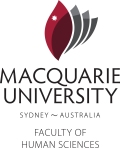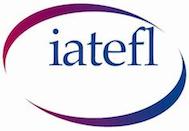The Linguistics Department at Macquarie University is pleased to host the following international visitors in August, 2014.
Supported by IATEFL Research SIG
A/Professor. Xuesong (Andy) Gao
Thursday, August 7, 2014
1-2 pm, Austn Hearing Hub (S2.6) 1st floor, Room 64
Empirical studies on foreign language learning and teaching in China (2008–2011): A review
In this presentation, I report on a recently conducted review study on empirical studies in leading language learning and teaching journals published on the Chinese mainland during the years 2008–2011. The selected studies document a variety of approaches to improving the teaching of the English language and meeting the demand for proficient English graduates in China. They address a wide range of topics including language learners’ cognitive processes, their language performance, and language teachers’ professional development. It was also noted in the review process that leading Chinese journals have become more receptive to empirical studies and have published an increasing number of qualitative and mixed method studies. However, research scholarship in those journals is still beset with problems and there is a pressing need for Chinese researchers to become ‘discerning’ producers of scholarship.
Monday August 18, 2014
1-2 pm, Austn Hearing Hub (S2.6) 1st floor, Room 64
Reflective Practice: What Does It Really Mean?
Reflective practice has been around in general education circles for some time now. However, there is some confusion concerning exactly what reflective is and what it involves even though it is nearly impossible to read literature in the fields of education, medicine, and science without some reference to the importance of reflective practice. This interactive talk examines the meaning of reflective practice for language teachers in the post-method years. Focusing on the work of John Dewey and Donald Schön, I examine the usefulness of reflective practice as a pragmatic tool for the professional development of teachers regardless on their level of experience. Specifically I explore how teachers can make use of Dewey’s ideas on reflective inquiry and Schön’s ideas of reflection-in-action as well as reflection-on-action and reflection-for-action. I outline examples of reflective practice from novice and experienced ESL teachers in Canada. Finally, I define what Reflective Practice really is.
NB This seminar will not be available via webcast
Tuesday, August 19, 2014
1-2 pm, E6A 102
What Does It Take To Be An English Language Teacher? Exploring Teacher Knowledge, Skill And Cognition
Teacher education for language teachers is predicated around assumptions concerning what teachers need to know, how they acquire knowledge and skills, and how they access their knowledge and skills in their practice. In this talk a number of core dimensions of teacher knowledge and skills will be explored, as well as their implications for teacher development.
Tuesday, August 26, 2014
1-2 pm, E6A 102
A role for written corrective feedback (CF) in L2 development: what we know, what we need to know and why
Whether or not the provision of written CF can play a role in L2 development is an issue that has been debated and empirically investigated on a number of fronts over the last 20 years. In the absence of a sufficiently developed theoretical case and limited empirical research, debate has flourished, but not always with well considered argumentation. The aim of this state-of-the-art talk is to (1) discuss what we know (both theoretically and empirically) and (2) suggest what we still need to know (both theoretically and empirically) and why. In considering what we know, the focus will be on (1) what various SLA theories say about the role of written CF in L2 learning, (2) the extent to which theoretical perspectives are applicable to L2 learning within the written context, (3) an evaluation of the empirical contributions so far and (4) the extent to which theoretical considerations and empirical research have been aligned. In suggesting what we still need to know, and why, the talk will reflect on the already established cognitive, socio-cognitive and socio-cultural perspectives and suggest how complexity/dynamic systems perspectives could further enlighten our understanding of why learners respond or fail to respond to written CF when provided. In particular, the relationship between individual and contextual factors will be discussed with a view to recommending new directions and new questions for empirical enquiry. The talk will end with a series of questions for the audience to engage with.
All seminars are free to attend.
Please be at the venue several minutes before the appointed time.
Building locations can be found on the following map:
http://www.mq.edu.au/on_campus/maps/campus_map/
No login/password required. They are also archived on the site for later access.
http://content.echo.mq.edu.au:8080/ess/portal/section/Linguistics_Seminar_2014







